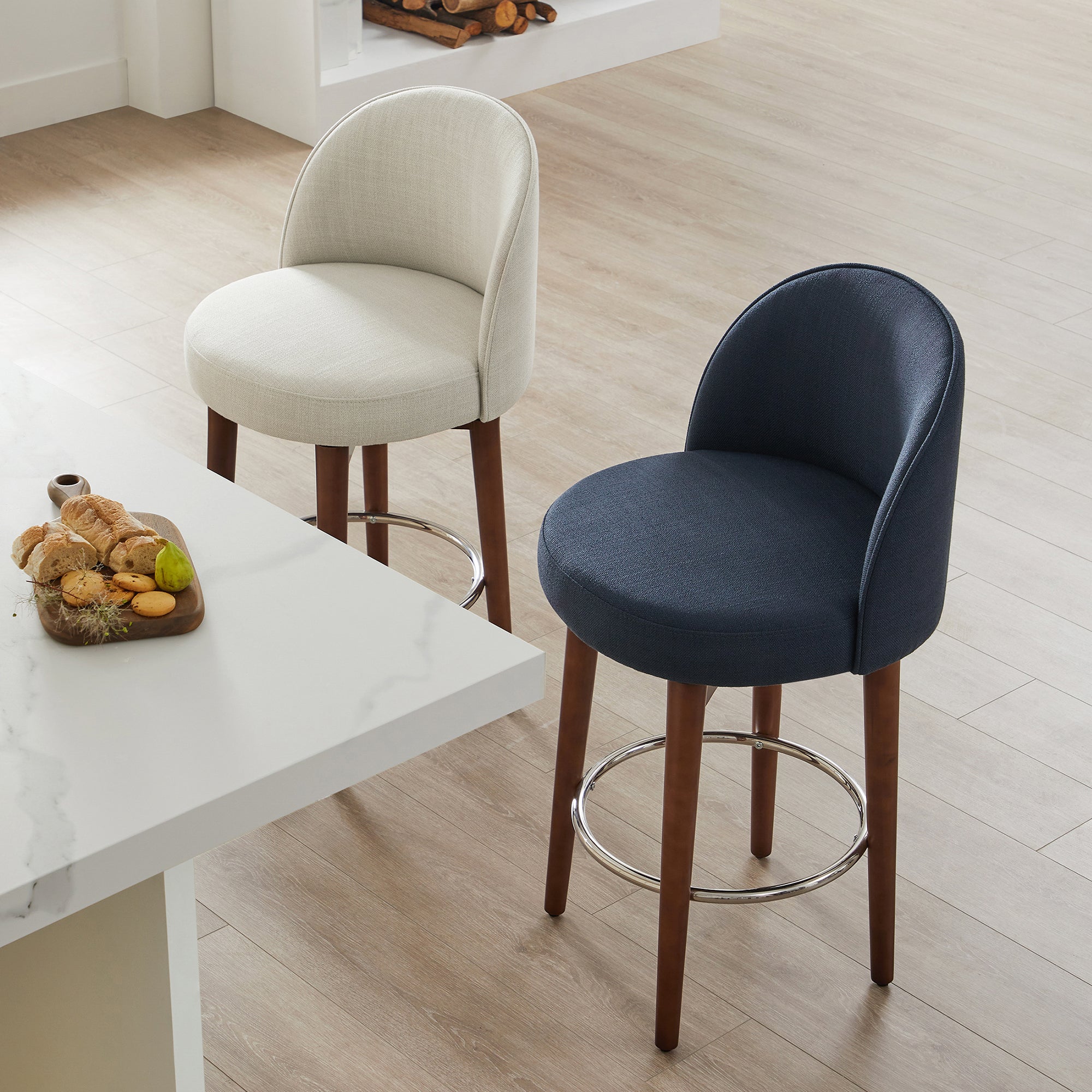Discover the Perfect Counter Stool That Transforms Your Space!
Counter stools are more than just a seating option; they play a pivotal role in the ambiance and functionality of your home. Whether you’re gathering friends for brunch or enjoying a quiet evening snack, the right counter stool can enhance both the utility and aesthetic appeal of your space. With a variety of styles, materials, and features available, choosing the ideal counter stool can seem overwhelming. This article aims to guide you through different types of counter stools and provide insight on how to select the perfect one for your home.

Understanding Counter Stools
Counter stools are generally defined as seating that is designed to be used at counter-height surfaces, typically ranging from 34 to 36 inches tall. Unlike bar stools, which are taller and designed for use at bar-height counters (usually around 40 to 42 inches), counter stools provide a more comfortable option for kitchen islands, breakfast bars, and lower dining surfaces. They offer a perfect blend of casual dining and social interaction, making them a popular choice in both residential and commercial settings. Whether you’re sipping coffee in your kitchen or hosting a cocktail party, counter stools serve as functional and stylish seating solutions.
Types of Counter Stools
When it comes to selecting counter stools, there are numerous types available to suit various tastes and needs:
1. Traditional Counter Stools
Traditional counter stools often feature classic designs that showcase rich wood finishes, ornate detailing, and comfortable backs. These stools can bring warmth and elegance to your space, making them a timeless choice for both rustic and more formal settings. They often incorporate materials such as hardwood, with finishes that range from natural to deep stains, enhancing their traditional appeal.
2. Modern Counter Stools
Modern counter stools embrace contemporary styles characterized by clean lines, minimalistic designs, and innovative materials. Often made from metal or molded plastic, these stools can add a chic touch to your kitchen or dining area. Their sleek profiles may also include bold colors or geometric shapes, making them suitable for a more avant-garde or industrial aesthetic.
3. Upholstered Counter Stools
For those who prioritize comfort alongside style, upholstered counter stools offer a plush seating option. These stools often feature cushioned seats and may include fabric or leather coverings in various colors and patterns. The added padding provides support during longer dining sessions or casual gatherings, making them a popular choice in family-oriented homes. Choosing the right fabric can also enhance your decor theme, whether you prefer a soft linen or a more durable synthetic material.
4. Adjustable Counter Stools
Adjustable counter stools are versatile seating options that can cater to users of different heights. With a mechanism that allows the seat height to be changed, these stools can easily transition from dining to casual seating. They are particularly practical in busy households or multi-use spaces, ensuring everyone can find a comfortable fit. Plus, many adjustable models feature stylish designs that don’t compromise on aesthetics.
5. Backless Counter Stools
Backless counter stools are known for their space-saving advantages and minimalist aesthetic. Ideal for small kitchens or casual dining areas, these stools can be tucked under counters when not in use, freeing up valuable space. They often embody a simple yet stylish design, making them suitable for both modern and traditional decor. While they may lack back support, many backless stools come with footrests to enhance comfort.
Choosing the Right Counter Stool
When it comes to selecting the right counter stool, several factors should be considered to ensure you make a choice that suits your needs:
1. Height and Size
Measuring for the right height is crucial. The ideal seat height for a counter stool is typically 10 to 12 inches shorter than the height of the counter. This ensures comfortable seating and ease of movement. Take into account the size of your space as well; a larger room can accommodate bulkier stools, while smaller areas may require more streamlined options.
2. Style and Aesthetics
Counter stools should harmonize with your overall decor theme. Consider the colors, materials, and design elements present in your space. Whether you lean towards a rustic, modern, or eclectic style, the right stool can complement your interior design and enhance the overall atmosphere of the room.
3. Comfort and Usability
Comfort is vital, especially if you plan to use your counter stools frequently. Look for features such as padded seats, supportive backs, and footrests. Testing out stools in person can help determine which features contribute to a pleasant seating experience.
4. Material and Durability
The material of your counter stools will impact their longevity and maintenance requirements. Wood offers warmth and a classic feel but may require more upkeep. Metal provides a modern vibe and is generally more durable, while plastic is lightweight and easy to clean. Weighing the pros and cons of each material can help in making an informed choice based on your lifestyle.
Final Thoughts on Selecting Counter Stools
In summary, counter stools are a functional and stylish addition to any space, and selecting the right one can significantly enhance both the utility and aesthetic appeal of your home. By understanding the various types of counter stools and considering important factors such as height, style, comfort, and material, you can find the perfect stools that cater to your preferences and needs. Remember to envision how they will fit into your space and lifestyle, and you’ll be well on your way to transforming your area into a welcoming and stylish environment.








